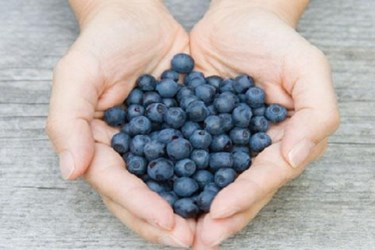Extending The Shelf Life Of Blueberries With Blueberries

By Sam Lewis

Researchers at Oregon State University have discovered a substance in blueberry leaves, normally discarded to waste or compost, that when added to blueberries extends their shelf life
Oregon State University (OSU) scientist Yanyun Zhao has been working with a group of international researchers in China. In the team’s research, the discovery of an edible coating made from extracts of blueberry leaves slowed the rate of decay of the fruit. Accompanied with decelerating decay come boosted levels of antioxidants and additional pathogen protection. The leaves of blueberries contain antioxidant phenolics. This is a compound that has antimicrobial qualities that can protect the fruit against bacteria such as Salmonella. Finally, the coating allows berries to retain water longer. This not only aids in extending shelf life, it increases the volume of the fruit, often leading to bigger profits for producers.
Not only does the coating extend the shelf life of the fruit and preserve its integrity, but by utilizing other parts of the plant, waste is reduced and sustainability elevated. “Normally, blueberry leaves fall to the ground as waste,” says Zhao, a food science and technology professor in OSU's College of Agricultural Sciences. “We've discovered a use that can change how the berries are stored, sold, as well as increasing their nutritional value.”
Zhao and the researchers created the coating by mixing the phelonic extracts with a preservative created from crustacean shells called chitosan. Experiments were conducted by the group using leaves picked at different stages of maturity. From there, they made five different coatings based on fluctuating levels of phenols. Once the extracts are created, the berries are dipped in them and allowed to dry at room temperature. The coating is also able to be sprayed on the berries.
Washington Fruit & Produce Enhances Traceability With Key Upgrades
Once the berries are coated, they can be washed and packaged as a ready-to-eat (RTE) food. Most often, berries are sold unwashed because the rinsing process removes the fruit’s natural, waxy, preservative coating. Zhao believes the cost of blueberries will rise due to the coating, but isn’t sure just how much of spike the price will see.
